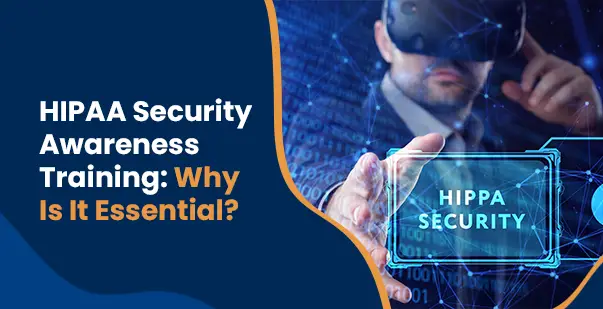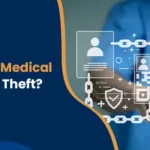Why HIPAA Security Awareness Training Matters for Compliance

November 10, 2025
A recent 2025 HIPAA Journal Annual Survey found that many healthcare organizations don’t offer regular HIPAA awareness training – leaving sensitive patient information exposed.
In this article, you’ll see how thorough HIPAA security awareness training protects patient data and helps your healthcare team stay on top of compliance requirements.
What Is HIPAA Security Awareness Training and Who Benefits?
HIPAA security awareness training is at the heart of protecting patient data in any healthcare setting.
Everyone from doctors and nurses to the billing staff touches protected health information (PHI) in some way – so they all play a key part in keeping it safe. PHI isn’t just about patient charts; it covers everything from medical records and billing statements to information tucked away in emails or even text messages.
Facing Today’s Cyber Threats
These days, healthcare organizations face nonstop cyber threats. Phishing, ransomware, and sneaky social engineering tricks are everywhere. Security training should never be treated as an optional extra. It’s the basic defense against these risks. Research from Old Dominion University points out that the best results come from engaging, interactive learning. Instead of boring staff with checklists, give them real-life situations they might face – like a lost phone, or someone pretending to be a coworker and asking for patient information.
Building a Culture of Vigilance
Regulators, like the US Department of Health and Human Services, stress the need for ongoing and meaningful training. Teams that practice cyber-safety through current events and real scenarios build a stronger defense together. The right HIPAA security awareness training makes it easier for staff to react fast as threats change – so patient data stays safe and organizations stay compliant.
How Can Poor HIPAA Training Put Patient Data at Risk?
Too often, hospitals and clinics deliver HIPAA security awareness training just once a year, sometimes using outdated slides or quick videos that employees rush through.
Why Check-the-Box Training Falls Short
This approach just doesn’t cut it. Healthcare workers balance many tasks at once – like patient care, billing, and compliance – which makes it easy for security reminders to slip through the cracks if they only come up once a year. According to the 2025 HIPAA Journal Annual Survey, many providers don’t offer in-depth HIPAA awareness training across the board. Sometimes, contractors or vendors get left out of the loop entirely.
The Real Cost of Training Gaps
Training gaps don’t just mean an outdated handbook. A missed reminder can lead to serious mistakes: a data breach, a regulatory investigation, or even big fines when private health details get exposed. The smartest organizations schedule updates often – quarterly or even monthly – to make sure staff stay current.
Let’s face it: real learning happens when staff practice with hands-on drills, try out cyber-safety in real scenarios, and get regular reminders. This kind of approach turns a standard training class into a real defense system for your organization.
Think about sending out a monthly newsletter with simple reminders and real-life examples of recent threats – stories from the field stick with people way more than generic warnings ever could.
What Good HIPAA Awareness Training Can Do for Healthcare Teams
Without a solid plan for HIPAA security compliance, healthcare organizations are flying blind – legally and day to day. Leadership matters here. If no one is officially responsible for privacy and compliance, things fall through the cracks.
The Role of the HIPAA Privacy Officer
According to the 2025 HIPAA Journal survey, places that don’t assign a dedicated, empowered Privacy Officer struggle to keep up. Privacy Officers can push policy changes, lead risk checks, organize frequent employee training, and handle breach reports fast. Not having someone in this role – or not giving them enough resources – means even the best HIPAA security awareness training won’t stick.
Why Documentation Matters
The details make all the difference. Keeping track of who completed training, when audits happened, and how you’d respond to a data breach is crucial. When these basics get overlooked, organizations become magnets for cyber incidents and can lose patient trust, fast. Poor documentation – even just missing training records – can lead to big fines if a breach happens.
Team Effort Drives Security
Strong coordination among privacy, HR, IT, and clinical staff creates a healthy security culture. HIPAA security compliance works best when everyone pitches in – not just as a box to check, but as part of daily patient care and teamwork.
Schedule regular privacy check-ins with different departments – just 10-minute huddles can surface hidden workflow risks and show where extra HIPAA awareness training might help.
How to Make HIPAA Security Training Work for Everyone in Healthcare
It takes real planning – and customization – to make HIPAA security awareness training pay off.
Training for Every Role
Everyone’s job is different. Nurses stick with electronic health records, admin teams dive into patient claims and billing, and IT folks keep networks secure. Business associates, like outside billing vendors or transcriptionists, need the same HIPAA awareness training as your full-time staff.
Making Training Stick
The best programs skip boring lectures. Instead, they pull in:
- Quizzes and email challenges
- Online scenario drills
- Role-plays and simulations
- Short, targeted campaigns for different teams
Results That Matter
Organizations need to track who finished training, catch knowledge gaps, and use data to tweak the program every year. Regular, hands-on training shows regulators – and your patients – that security really matters at your facility. When staff know what to watch for, they feel confident calling out suspicious activity and keeping PHI private.
Ask staff for feedback after every training cycle, and actually use their ideas to fine-tune the approach – staff buy-in improves when they see their input shaping the program.
| Training Element | Why It Matters | How It Works |
| Training for Every Role | Different staff interact with PHI in unique ways, so training should match their daily responsibilities. | Nurses, admin, IT, and business associates all receive role-specific, relevant training. |
| Engaging Methods | Boring lectures don’t work – interactive learning leads to better results. | Programs include quizzes, email challenges, scenario drills, and role-plays. |
| Targeted Campaigns | Short, specific campaigns help different teams stay sharp on key issues. | Brief campaigns focus on the most relevant risks for each group. |
| Tracking and Improvement | Regular tracking identifies gaps and keeps training effective. | Organizations track training completion and adjust the program yearly based on results. |
Keeping HIPAA Security Compliance Strong Over Time
When HIPAA security awareness training is more than just a yearly event, the whole healthcare organization benefits.
Trust Starts Here
Your patients want to know their health information is safe. Consistent, ongoing training gives your staff the confidence to protect it – and patients feel reassured, knowing their privacy is taken seriously.
What Happens When Staff Feel Prepared
Well-trained staff spot threats faster, stop breaches before they spread, and keep your practice running smoothly. This not only reduces risks but strengthens your reputation as a secure, trustworthy care provider.
Moving Forward in a Digital World
As healthcare grows more digital and remote, regular training is mission-critical. It helps organizations adapt to new challenges and lead the way in data privacy and HIPAA security compliance. Investing in adaptable training and fostering responsibility at every level positions providers to face whatever comes next – while keeping patient trust at the heart of their work.
Try running occasional tabletop exercises or mock breach drills – these interactive sessions go far beyond the usual slide decks and help cement key lessons for everyone involved.
Conclusion
HIPAA security awareness training plays a huge role in modern healthcare. It makes sure staff, contractors, and business associates are all clear on how to keep patient data safe. Consistent, targeted training backed by strong leadership reduces the risks of data breaches and helps everyone meet regulations. At the same time, it shows patients their information matters.
By making HIPAA security awareness a priority, healthcare teams can build trust, keep threats in check, and maintain compliance even as the digital landscape keeps changing. Now’s a good time to review how your team trains and see where you can strengthen security for everyone’s peace of mind.
FAQs
1: Why is HIPAA security awareness training crucial for healthcare workers?
A: HIPAA security awareness training equips healthcare workers to identify warning signs of compromised information security, keeping patient data protected and supporting HIPAA security compliance across the organization.
2: How does HIPAA awareness training help maintain security compliance?
A: HIPAA awareness training establishes a culture of cyber vigilance, enabling organizations and employees to protect healthcare data and maintain security compliance with HIPAA and other regulatory mandates.
3: How often should healthcare staff complete HIPAA security awareness training?
A: Healthcare staff should complete HIPAA security awareness training frequently, with best practice recommending at least annual sessions to reinforce compliance and keep staff aware of evolving cybersecurity threats.
4: Can lack of HIPAA security awareness training increase compliance risks?
A: Yes, skipping HIPAA security awareness training increases vulnerability to breaches and can result in regulatory penalties. Ongoing training ensures staff readiness and closes compliance gaps that might leave patient information exposed.





